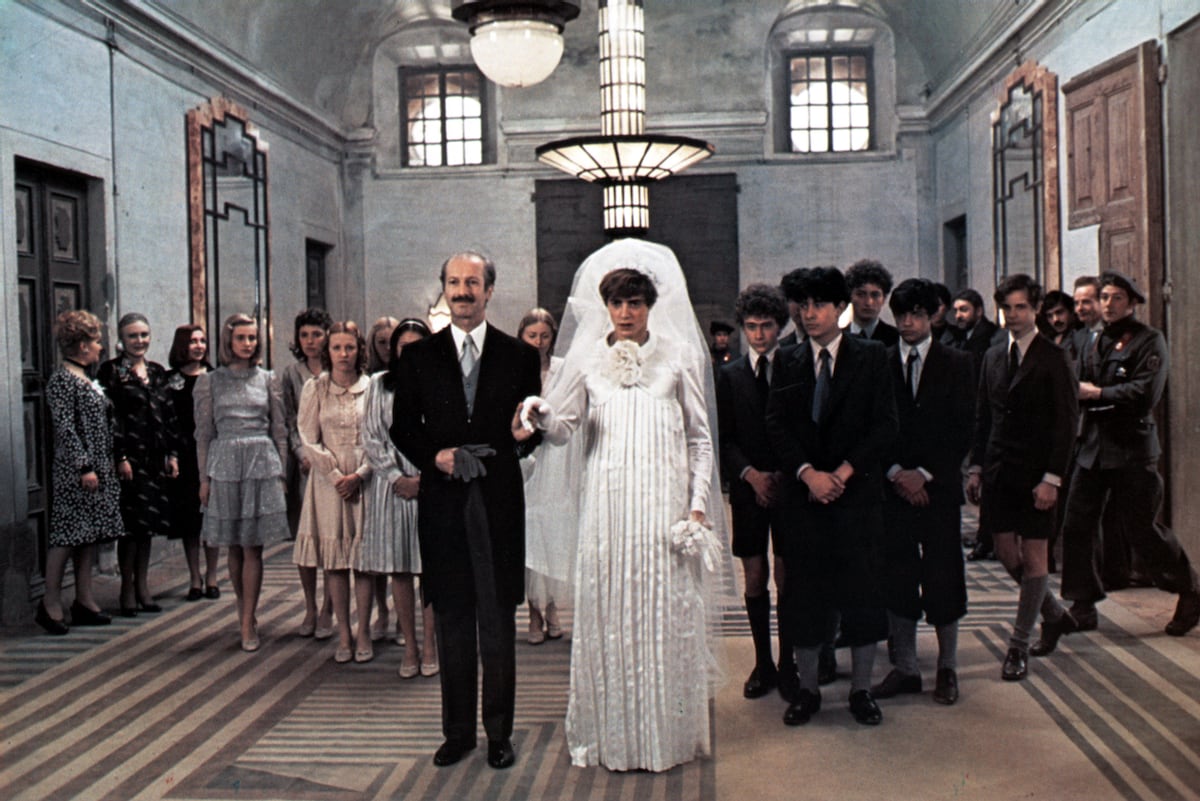
"Watching Pier Paolo Pasolini's Salo, or the 120 Days of Sodom today is as extreme and at times unbearable an experience as it was 50 years ago, when it marked its troubled premiere. Its scenes of forced sex, bodily sadism, coprophagy, humiliation, and mutilation, filmed in magnificent settings and with exquisitely beautiful formal apparatus, generate the same horror, the same moral repugnance. But above all, the field in which the film extends its relevance with greatest authority is the political,"
"What Salo enunciates a study of the violence that underlies the exercise of power in capitalist societies has not lost one iota of its potency and validity. Perhaps that message was the veiled motive behind the initial attacks on the movie by extremist groups, while a furious rush to ban its screening including a prison sentence for its producer was unleashed in the courts:"
Salo remains as extreme and at times unbearable an experience as at its premiere fifty years ago. Scenes of forced sex, bodily sadism, coprophagy, humiliation, and mutilation are staged in magnificent settings with exquisitely beautiful formal apparatus, producing horror and moral repugnance. The film's primary force is political: it offers a study of the violence underlying the exercise of power in capitalist societies and preserves its potency and validity. The film provoked violent reactions and legal attempts to ban its screening, including a prison sentence for its producer; Pasolini's murder shortly before release intensified the controversy. Several mid-1970s films similarly pushed cinematic boundaries, redefining scandal while expressing societal malaise.
Read at english.elpais.com
Unable to calculate read time
Collection
[
|
...
]